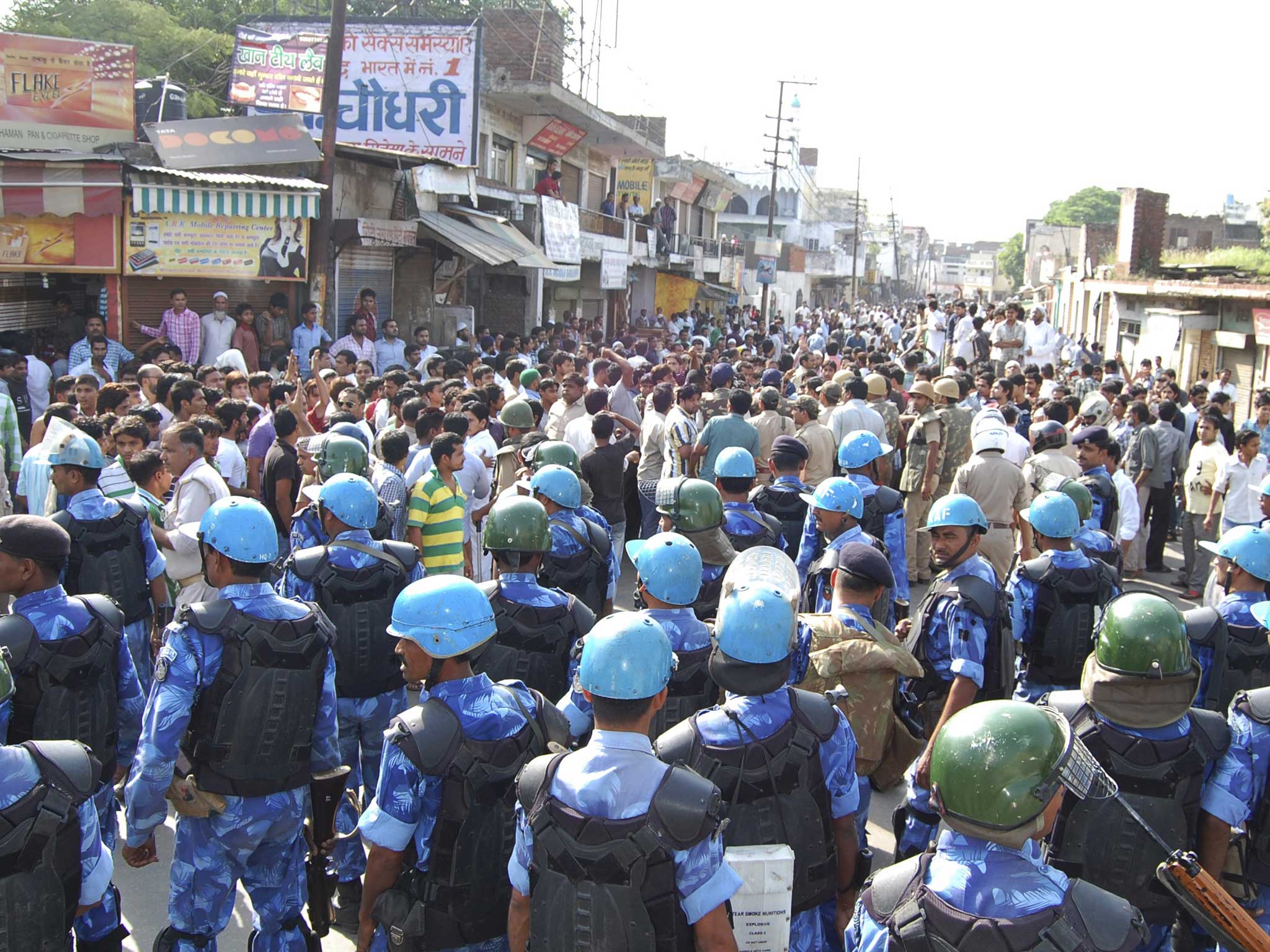India: Muzaffarnagar clashes leave 28 dead as police investigate role of politicians in violence

Police in northern India are investigating the role of six politicians they believe may have been responsible for inciting violence between members of different religious communities that has left at least 28 people dead.
Hundreds of troops and paramilitary police have been dispatched to the town of Muzaffarnagar, located around 90 miles north east of Delhi in the state of Uttar Pradesh, to restore order after days of tension erupted in clashes over the weekend. Among those killed was a part-time cameraman with a local television channel who was shot while filming the violence.
The initial spark for the clashes between members of the Muslim and Hindu communities appears to have been a relatively trivial incident involving two or three men. Reports in the Indian media differ as to whether it was an argument over the harassment of a woman or else a collision involving motorbikes.
Either way, one of the young men, Shah Nawaz, a Muslim from Kawal village outside of Muzaffarnagar, was stabbed to death on 27 August. Soon afterwards, members of his family allegedly retaliated and two young Hindu men, identified as Sachin and Gaurav, who they blamed for the stabbing, were also killed.
Tension has been high for ten days. On Saturday, thousands of Hindu farmers gathered to demand justice for the two young men killed on 27 August. Police have said they believe a number of incendiary speeches were made at the meeting by local politicians.
In addition, a video clip showing two men being hanged and which police say was made two years ago in either Afghanistan or Pakistan, has been circulating on social media, adding to the animosity.
After clashes broke out on Saturday, the authorities dispatched security reinforcements. But while the police and soldiers were able to bring calm to the main part of Muzaffarnagar, clashes continued in outlying villages and more than 15 more people were killed.
The violence in Muzaffarnagar has played out against the backdrop of preparations for a national election, due to be held by the spring. Uttar Pradesh is the most politically important of the Indian states, returning 80 of the 543 elected members of the lower house of the national parliament.
Various political parties have accused one another of trying to stir tension for their gain. The Samajwadi party (SP), which controls the state government of UP, has accused the Bharatiya Janata Party (BJP), the main opposition party, of “engineering riots”.
The NDTV news channel said that police had issued warrants for the arrest of five politicians, including four members of the provincial assembly who belong to the BJP - Hukum Singh, Sangeet Som, Bhartendu Singh and Suresh Rana.
In addition, Harendra Malik, a former member of parliament belonging to the Congress party, which controls India’s federal government, is also being investigated.
Hukum Singh of the BJP said he had attended the farmers’ rally, but denied making provocative comments. He said his speech had been recorded and that police could watch the tapes.
“The government is looking for scapegoats. I have been appealing to the public to let peace return,” he told the news channel. “I have not caused communal tension ever.”
Police on Monday said they were searching for weapons and questioning suspects. Shops and schools in Muzaffarnagar remain closed.
Senior regional police officer Arun Kumar told reporters that a total of 90 people had been arrested. Officers have said rumours being spread by mobile phones and social media were making it more difficult for police to end the violence.
A state of alert has been declared for the state of UP, where in 1992 the destruction of a 16th century mosque by a Hindu mob in the town of Ayodhya let to some of India’s worst communal clashes since partition.
Join our commenting forum
Join thought-provoking conversations, follow other Independent readers and see their replies
Comments